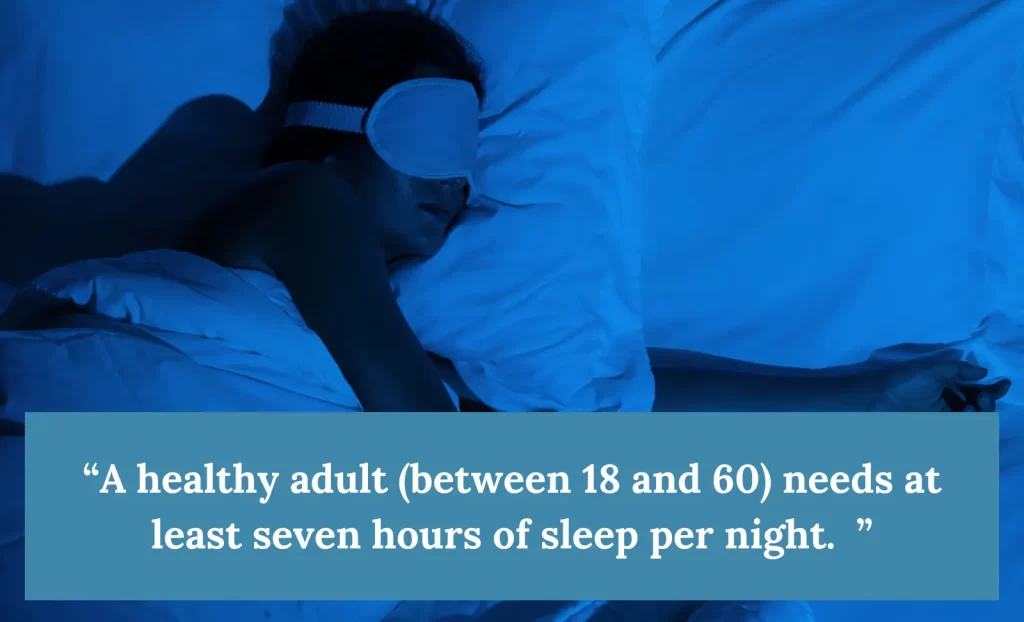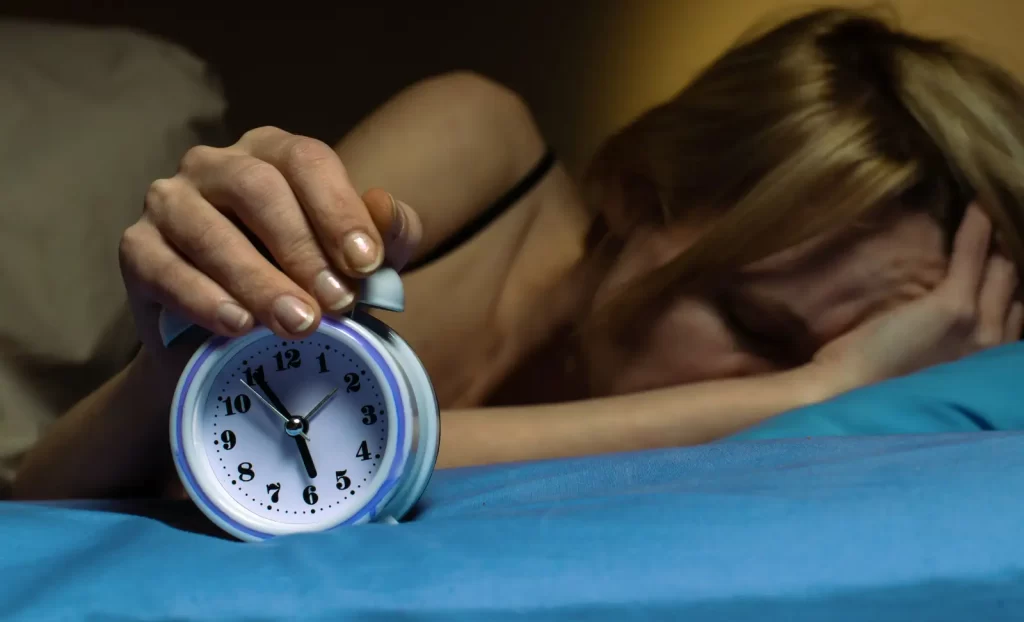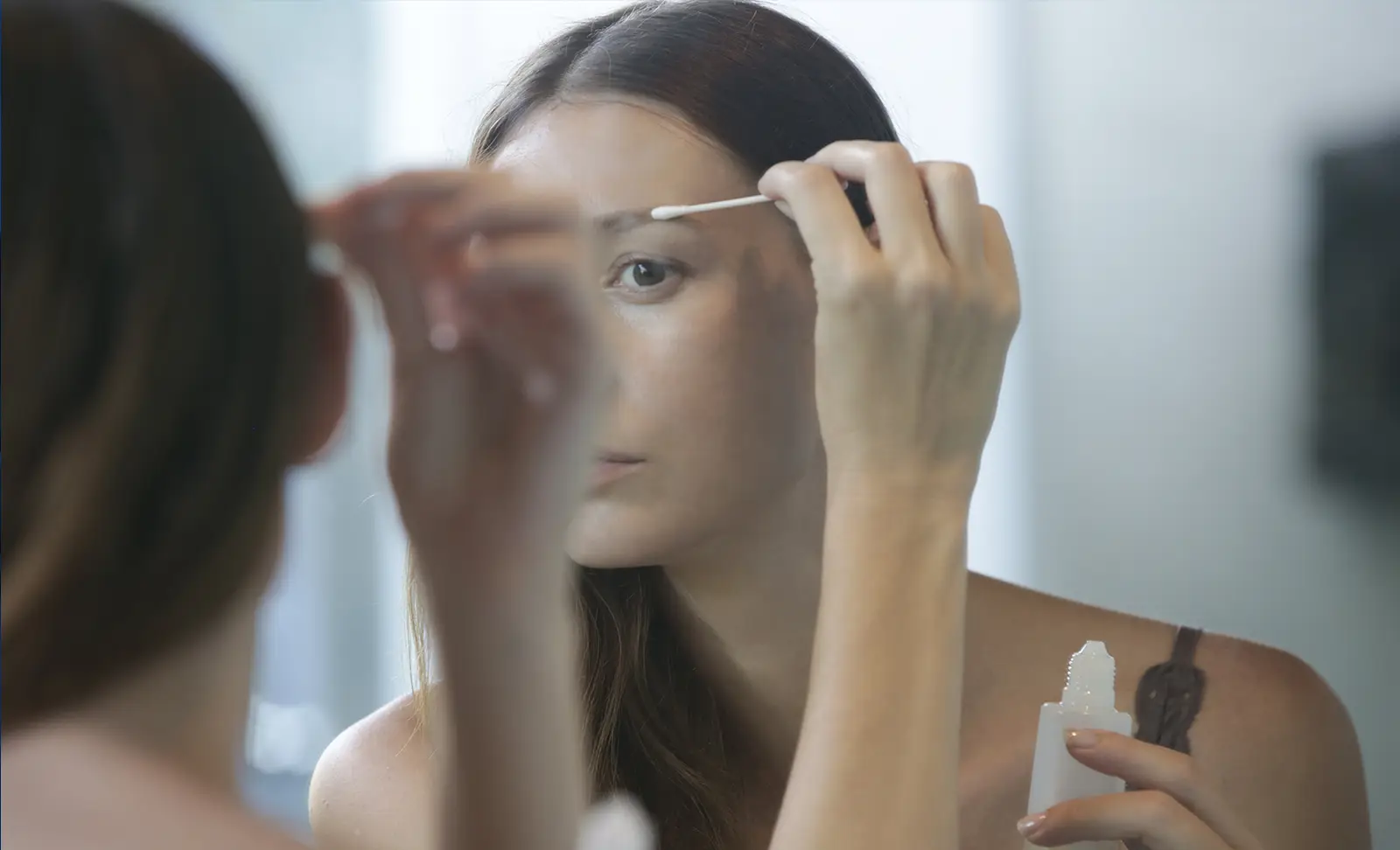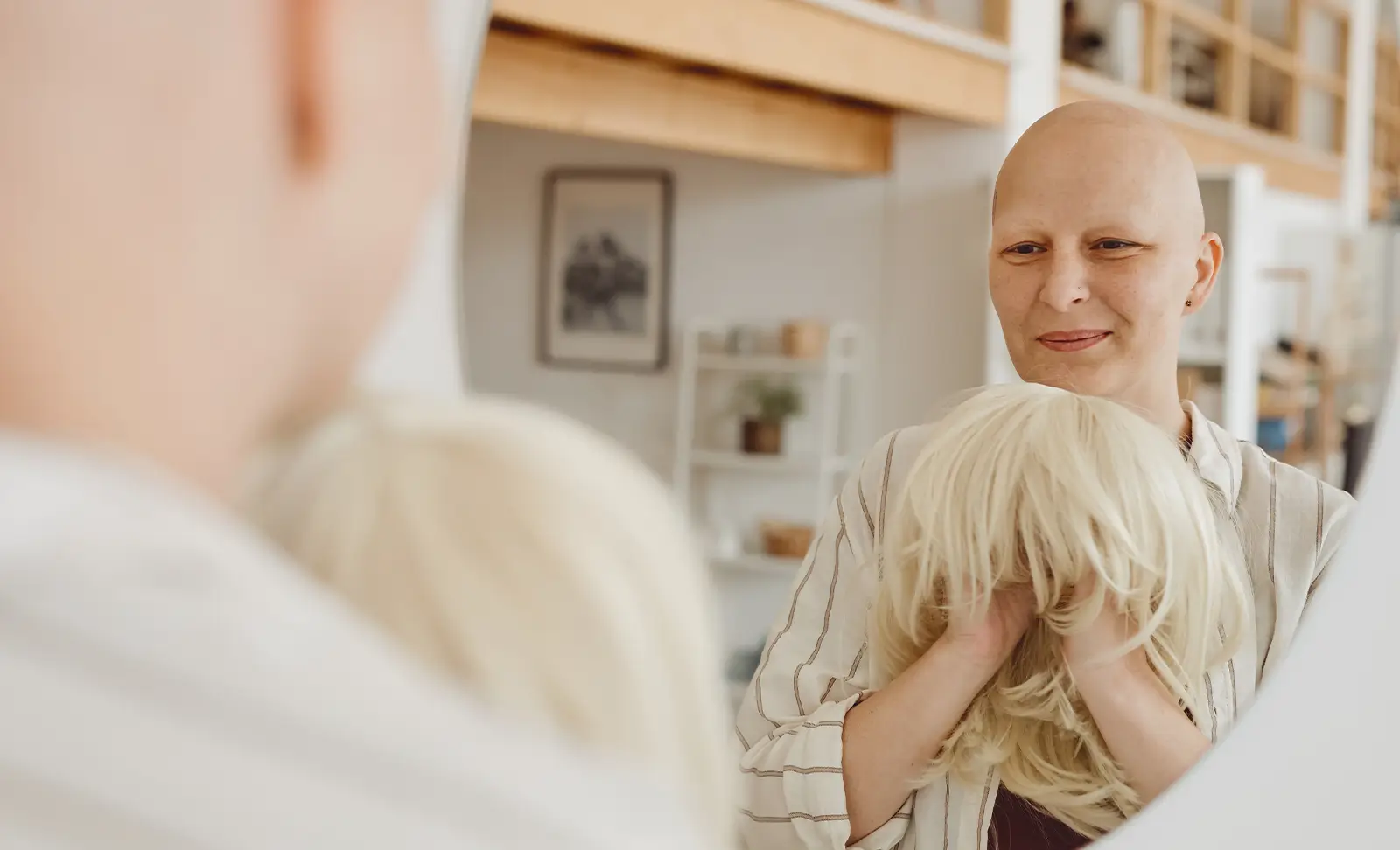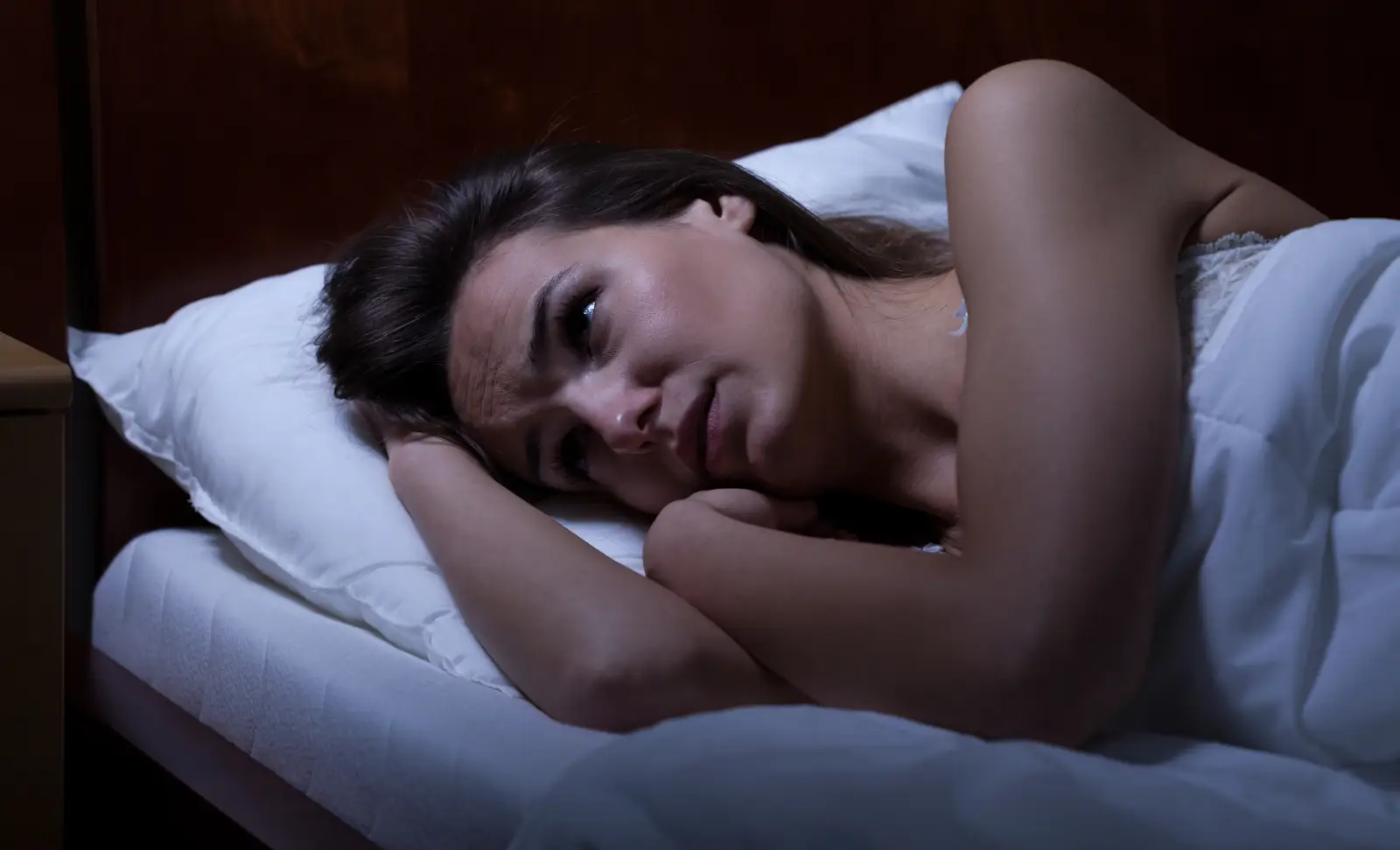
Sleep deprivation is no joke. If you don’t regularly get a good night’s rest most nights, your physical and mental health will be significantly impacted, with research showing that sleep deprivation is linked to things like heart disease and obesity. [1]
So, what about your hair? Can lack of sleep cause hair loss? You might think staying up a little longer each night will not have much impact on your strands, but that’s where you’d be wrong. If you want to learn the link between sleep deprivation and hair loss, you’re in the right place.
The Consequences of Sleep Deprivation
It’s well documented by now just how harmful sleep deprivation can be. A healthy adult (between 18 and 60) needs at least seven hours of sleep per night. [2] Unfortunately, many people don’t quite reach this number, with around 1 in 5 people in the UK not getting enough sleep. [3]
The consequences of this are dire. If you don’t get the recommended seven hours of sleep per night, it can harm your mood, impact your memory, increase your risk of diabetes, lead to weight gain, weaken your immune system, and increase your blood pressure (in turn, increasing the chances of heart disease). [4] There’s a reason your doctor stresses just how vital those forty winks are!
Why is Sleep So Important?
During the night, while we sleep, our bodies undergo a reparation process. Four stages of the sleep cycle occur during this time, going from light sleep to deep sleep. Going through all of these stages is crucial so that your body and mind feel refreshed when you wake up. In the long term, sleep contributes to a healthier immune system, faster metabolism, and the ability to process memories.
Can Lack of Sleep Cause Hair Loss?
Yes, and it’s all about the link between stress and sleep. A lack of sleep is a type of stress that can wreak havoc on your mind and body. If you’re overly stressed due to sleep deprivation, it can lead to telogen effluvium, a type of alopecia, a type of rapid hair loss that strikes after a sudden stress or change within your body.
Telogen Effluvium: The Type of Alopecia Commonly Caused by Sleep Deprivation
As mentioned, telogen effluvium is a type of fast hair loss that occurs after your body goes through some kind of stress. What happens is that the typical hair growth cycle becomes messed up, and you end up prematurely entering the telogen stage, which is when your scalp sheds hair. Due to this, your scalp sheds excessive hair, leading to thinning and hair loss. In terms of severity, you might notice just a little thinning, or you may see huge clumps of hair falling out at once.
Is Hair Loss Due to Lack of Sleep Permanent?
When contemplating the question, ‘Can lack of sleep cause hair loss,’ it’s useful to think about whether such changes are long-lasting. There is some good news: typically, hair loss caused by sleep/stress is usually only temporary. If you change your sleeping habits and combat the stressors in your life, there’s an excellent chance you can regrow your hair to how it once was. In some cases, a hair loss treatment may help regrow your hair and reduce shedding.
Are You Getting Good Sleep?
It’s not always easy to tell whether you’re getting a good night’s sleep or not. You might spend seven hours in bed, but are you getting the rest you need during that time? Here are some common signs – other than sudden hair loss – that your sleep quality simply isn’t up to scratch:
It Takes More than 30 Minutes to Drop Off
Most people should be able to drop off in under ten minutes. If you’re spending more than thirty minutes waiting for sleep to take you away, that’s a sign there’s something amiss.
You Wake Up Regularly
Waking up now and again because you need to use the bathroom or heard a loud noise isn’t a huge issue. However, if you regularly wake up in the night and often spend more than twenty minutes trying to drop back off again, that’s a sign of low-quality sleep.
You Feel Tired
One of the most obvious signs of low-quality sleep is feeling tired throughout the day. Of course, there could be other causes of this, such as nutritional deficiencies, so it’s essential to speak to your doctor if you’re experiencing fatigue.
How to Get High-quality Sleep
Knowing how impactful your sleep habits are on your strands, it makes sense that you’d be motivated to get better sleep each night. Of course, that’s much easier said than done, especially if you have insomnia. Here are our tips for getting the rest you need:
Avoid the Screens
Staring at a screen can impact your sleep, so avoid going on your phone/computer/laptop for at least thirty minutes before bed. In fact, a no-device rule in the bedroom is a great idea.
Avoid Caffeine and Alcohol
Both caffeine and alcohol can disrupt your sleep cycle. Drink caffeine too close to bedtime, and you’ll struggle to drop off. Alcohol may not lead to a struggle to fall asleep, but it can affect your body’s natural sleep cycle, so you’ll still wake up feeling tired.
Start a Sleep Routine
Getting in a regular sleep routine will train your body that it’s time for sleep. Some suitable activities before bed include yoga, meditation, and reading a book.
Create the Perfect Sleeping Atmosphere
Your bedroom should be the perfect sleeping environment. Your goal is a cool, dark room with zero distractions. You might even find soft, relaxing music can help you drop off.
Is a Lack of Sleep Really the Reason for Your Hair Loss?
While the answer to ‘Can a lack of sleep cause hair loss?’ is an undeniable yes, that doesn’t necessarily mean sleep is the reason you’re losing your locks. While sleep deprivation is a potential cause of hair loss, there are lots of other possible reasons. If you’ve experienced hair loss at all, it’s best to speak with a doctor to get to the root cause. There might be other lifestyle factors that are causing it (such as drinking alcohol or smoking cigarettes). Or, your hair loss may be hereditary. Here are some of the other common causes of hair loss or thinning:
- Genetics
- Hormonal Changes
- Certain Medications
- Weight Loss
- Cancer Treatment
- Illness
- Iron Deficiencies
- Other Deficiencies
- Pregnancy
- Autoimmune Disorders
Treating Stress-related Hair Loss
Sudden hair loss caused by a lack of sleep can usually be treated by simply reducing stress and waiting. As mentioned, telogen effluvium is often temporary. If your hair doesn’t grow back, it’s best to speak with your doctor.
If you realise the hair loss is not temporary, then there are hair restoration options that can help you. Here are some of the most recommended by doctors.
Minoxidil
Minoxidil is a popular hair restoration treatment that you apply topically to the scalp. It’s relatively affordable and is available over the counter, with many people experiencing androgenetic alopecia gaining great results.
Finasteride
Finasteride is a male-only medication that prevents the production of DHT. It’s an oral medication that can help you regrow your hair, but it’s usually for male pattern baldness rather than stress-related hair loss.
Steroids
If necessary, your doctor may prescribe steroid injections or a steroid cream, which is applied directly to the area experiencing hair loss.
Light Therapy
Low-level light therapy has been proven to be a promising treatment through hair growth. It can be done in certain clinics, or you can purchase low-level light therapy devices for home use.
Hair Transplants
A hair transplant is a more permanent option for restoring hair. If you have chronic stress-related hair loss, it can be the best option for restoring your locks for good. Newer methods include FUE, which involves transplanting single follicles to the balding area, creating highly natural results. That’s the method we use here at Harley Street Hair Clinic.
Getting a Hair Transplant
If you’re considering getting a hair transplant to treat hair loss, it’s important to weigh up your decision. If you’ve recently experienced stress-related hair loss, it’s worth waiting a little while to see if it grows back or if other treatments help.
On the other hand, if you’re a healthy adult who has experienced hair loss for quite some time, it might just be the answer that helps you regain your confidence. If you’re considering it, we have a hair track app that gives you access to no-obligation consultations with the best hair restoration surgeons in the world.
In Summary: Can Lack of Sleep Cause Hair Loss?
Hopefully, we have answered the question, ‘Can lack of sleep cause hair loss?’ The answer is yes; not getting enough sleep each night can undoubtedly lead to your hair falling out due to stress. That’s one of the many reasons why improving your sleep quality is imperative for your overall mental and physical health. If you’re not getting enough sleep, it’s crucial to address why and make a plan to help you get the rest you need.
Is your hair loss not going away? Unfortunately, not all hair loss is temporary, and you will need some form of hair restoration treatment to see a head full of hair once more. At Harley Street Hair Clinic, we offer real, visible solutions that can transform your scalp (and confidence). Just browse our patients gallery to see what we can do!
Sources:
- https://newsinhealth.nih.gov/2013/04/benefits-slumber#:~:text=%E2%80%9CSleep%20affects%20almost%20every%20tissue,obesity%2C%20heart%20disease%20and%20infections.
- https://www.cdc.gov/sleep/about_sleep/how_much_sleep.html
- https://mentalhealth-uk.org/help-and-information/sleep/
- https://www.healthline.com/health/sleep-deprivation/effects-on-body
